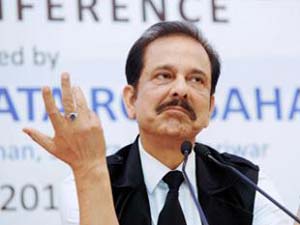New Delhi, Apr 23: Congress president Sonia Gandhi on Thursday accused the BJP of spreading the virus of communal prejudice and hatred in the country, asserting that "grave damage" is being done to social harmony
Addressing a meeting of the Congress Working Committee, Gandhi said it should worry every Indian and her party will have to work hard to repair this damage.
"Let me also share with you something that should worry each and every one of us as Indians. When we should be tackling the coronavirus unitedly, the BJP continues to spread the virus of communal prejudice and hatred," she said.
"Grave damage is being done to our social harmony. Our party, we will have to work hard to repair that damage," the Congress president added
Former prime minister Manmohan Singh, former Congress president Rahul Gandhi and top Congress leaders attended the meeting through video conference
This is the second time the CWC, the Congress' top decision-making body, is meeting through video-conferencing in the past three weeks ever since the lockdown was enforced to contain the coronavirus threat.
The Congress president said the coronavirus pandemic has increased disturbingly in the past three weeks and called upon the government to increase testing for it
Gandhi said she has written several times to the prime minister since the lockdown was enforced and suggested several measures and constructive cooperation
"Unfortunately, they have been acted upon only partially and in a miserly way. The compassion, large-heartedness and alacrity that should be forthcoming from the central government is conspicuous by its absence," she said
The Congress chief said the focus of the party must continue to be on successfully engaging with health, food security and livelihood issues.
She claimed that around 12 crore people have lost jobs in the first phase of the lockdown and urged the government to provide a relief package for the MSME sector, which accounts for one-third of the GDP
Gandhi called upon the government to provide food and financial security to migrants and jobless stranded at various places and were desperate to reach back home
"We have repeatedly urged PM there is no alternative to testing, tracing and quarantine. Unfortunately, testing still remains low, testing kits still in short supply," she noted
Gandhi said trade, commerce and industry have come to a virtual halt and crores of livelihoods have been destroyed.
"The central government does not appear to have a clear idea on how the situation will be managed after May 3rd. A lockdown of the present nature after that date would be even more devastating," she said
Former prime minister Manmohan said the success of the lockdown will be judged finally on India's ability to tackle COVID-19
He also said the cooperation between the Centre and states was key to success of the country's fight against coronavirus
Singh said it is necessary to focus on a number of issues in the fight against coronavirus
The fight against COVID-19 would very much depend upon the availability of resources, he noted
Rajasthan chief minister Ashok Gehlot said unless the central government comes forward to financially help states, the fight against COVID-19 will get weakened
"Unless there is a big financial package for states, how will normalcy return to states post lockdown," he asked
Chhattisgarh chief minister Bhupesh Baghel said unless the Centre rises to the occasion and provides financial assistance to states, how will the fight against COVID-19 be won
Puducherry chief minister V Narayanasamy said the Union government has not given any assistance to the states
"How will states survive in times of crisis. We are not enemies but have to act and work together," Narayanasamy said at the CWC meet.
 Sahara group chief Subrata Roy will stay in Tihar jail for some more time as the Supreme Court Thursday declined his plea for release on a personal bond with an assurance that he will not leave the country.
Sahara group chief Subrata Roy will stay in Tihar jail for some more time as the Supreme Court Thursday declined his plea for release on a personal bond with an assurance that he will not leave the country.




Comments
Add new comment